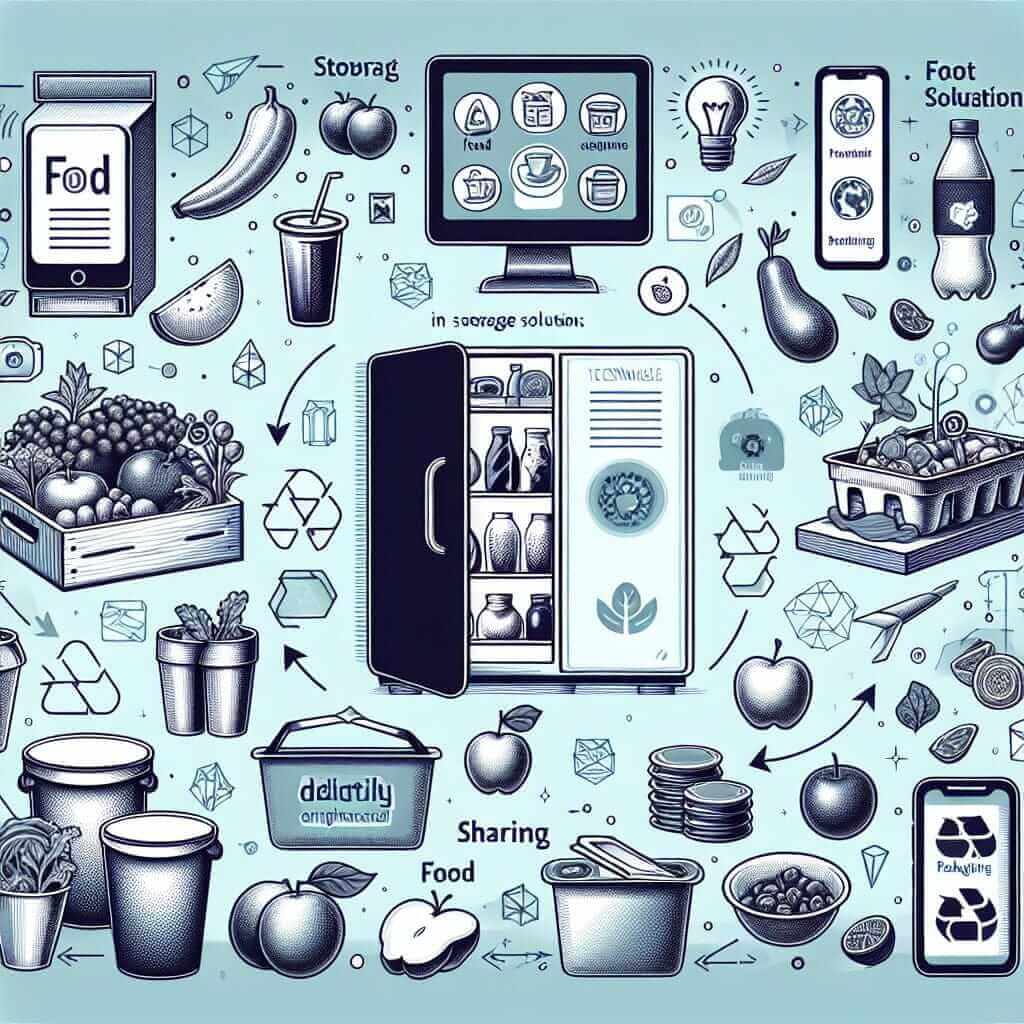Food waste is a global issue with dire economic, environmental, and societal consequences. As the world’s population grows, so too does the urgency to find efficient and sustainable solutions to minimize food waste throughout the supply chain. “The role of technology in reducing food waste” is a topic frequently appearing in IELTS Writing Task 2, reflecting its global significance. This essay will delve into this crucial topic, providing a sample answer, analysis, and essential vocabulary to help you excel in your IELTS exam.
Sample IELTS Writing Task 2 Question
Many people believe that technology plays a crucial role in reducing food waste, while others argue that changing consumer behavior is more important. Discuss both views and give your own opinion.
Analysis of the Question
This question presents a classic “discuss both views and give your opinion” essay structure. You are expected to:
- Paragraph 1 (Introduction): Introduce the topic of food waste and briefly state both sides of the argument.
- Paragraph 2 (Body Paragraph 1): Discuss the role of technology in reducing food waste, providing relevant examples.
- Paragraph 3 (Body Paragraph 2): Explain why changing consumer behavior is crucial in tackling food waste, supporting your points with examples.
- Paragraph 4 (Conclusion): State your opinion, summarizing the main points from the previous paragraphs and offering a balanced perspective.
Sample Essay
Food waste represents a significant global challenge, with profound implications for the environment and society. While some advocate for technological solutions as the key to addressing this issue, others maintain that changing consumer behavior is paramount. This essay will delve into both perspectives before presenting my own viewpoint.
Technological advancements offer a plethora of solutions to combat food waste. For instance, innovative packaging materials with enhanced barrier properties can significantly extend the shelf life of perishable goods, reducing spoilage during transportation and storage. Moreover, smart inventory management systems employed by supermarkets and restaurants can accurately predict demand, minimizing overstocking and subsequent waste. Furthermore, mobile applications connecting consumers with surplus food from restaurants and retailers at discounted prices offer a practical way to redirect edible food from landfills.

However, technology alone cannot entirely eradicate food waste; changing consumer behavior is equally critical. Consumers often purchase excessive quantities of food, leading to spoilage and waste. Educating individuals about proper food storage techniques, portion control, and the importance of meal planning can significantly curtail household food waste. Moreover, raising awareness about the environmental and social ramifications of food waste through public campaigns and educational initiatives can encourage more responsible consumption patterns.
In conclusion, while technology plays a vital role in minimizing food waste through innovative preservation techniques and optimized supply chains, altering consumer behavior is equally essential. Addressing this global issue necessitates a multifaceted approach that combines technological advancements with widespread behavioral changes to create a more sustainable and responsible food system.
(Word Count: 279 words)
Notes for Writing
- Vocabulary: Utilize a wide range of vocabulary related to technology, food waste, and consumer behavior. Avoid repetition and aim for precision in your language.
- Grammar: Pay close attention to grammar rules, particularly subject-verb agreement, articles, and tense consistency. Use complex sentences to demonstrate your command of grammar.
- Coherence and Cohesion: Ensure your essay flows smoothly with clear topic sentences and appropriate linking words to connect ideas within and between paragraphs.
Difficult Vocabulary
- Dire (adjective) /daɪər/: Extremely serious or urgent.
- Sustainable (adjective) /səˈsteɪnəbl/: Able to be maintained at a certain rate or level.
- Paramount (adjective) /ˈpærəmaʊnt/: More important than anything else; supreme.
- Delve (verb) /dɛlv/: Reach inside a receptacle and search for something.
- Plethora (noun) /ˈplɛθərə/: A large or excessive amount of something.
- Enhanced (adjective) /ɪnˈhænst/: Improved in quality, value, or extent.
- Perishable (adjective) /ˈpɛrɪʃəbl/: Likely to decay or go bad quickly.
- Curtail (verb) /kɜːrˈteɪl/: Reduce in extent or quantity; impose a restriction on.
- Ramifications (noun) /ˌræmɪfɪˈkeɪʃənz/: A consequence of an action or event, especially when complex or unwelcome.
- Multifaceted (adjective) /ˌmʌltiˈfæsɪtɪd/: Having many different aspects or features.
Conclusion
Tackling food waste requires a comprehensive approach, and understanding the role of technology is just one part of the solution. Remember to practice writing essays on similar topics, incorporating the vocabulary and tips provided above. With diligent practice, you can confidently express your ideas and achieve a high band score in your IELTS Writing Task 2 exam. Be sure to also research other related issues such as sustainable agriculture, food security, and the environmental impact of food production to gain a broader perspective on this pressing global challenge.